|
by Luv Mehta We just came off Doctor Who’s strongest season yet, the final season for both Tennant and Davies, and now we’re heading into completely new territory - new Doctor, new showrunner, and as the resident Doctor Who expert (my sister) tells me, a completely new crew to film these episodes. Exciting times ahead, so let’s jump in! Before we do that, though, let's recap the ratings system and death levels again:-
Also, if you haven't seen the previous recaps already, they can be found here:- Let's start! The Eleventh DoctorI’ve been excited for Steven Moffat’s tenure as showrunner ever since season one, and each one of his stories in each season before this have been Sci-Fi Classics. Now, obviously, he’ll be spread out much farther across each series, and he might not be able to belt out brilliant episodes one after the other, but that’s fine. Because if they’re anything like this episode, I’m perfectly fine with this decision. Matt Smith is the new Doctor, and he’s perfect. Younger than both David Tennant and Christopher Eccleston, he brings a great joy and exuberance to the show, and yet, at once, behaves like an old and wise man stuck in a younger body. He’s intelligent, crafty, whimsical and fun. If any Tennant fans felt bad that they’d never see their Doctor quite the same again, here’s the perfect episode to shake them back into excitement. The episode itself is fantastic too, full of wonder and delight, using the idea of the Doctor as a fairytale (much like The Girl In The Fireplace, actually - but if Moffat steals from his own best work, I don’t have any problem with that) and bringing him and the new companion together across the passage of time to stop Earth from yet another global catastrophe. The villain of this story is fun and inventive as well, using an imperfect shape-changing gimmick in a memorable way, and the way it’s ultimately dispatched is clever as well. The new companion, Amelia Pond, seems like an incredible potential companion as well, being just as feisty and fun as Donna, while still holding a sympathetic side due to her own childhood woes, showing hints of a damaged psyche the Doctor left behind as collateral damage, even if it was by mistake. The show’s at its best when the Doctor isn’t presented as an infallible hero, and it’s good to see that the Eleventh Doctor won’t be subject to any Creator’s Pet tendencies. Overall, is it a contender for Sci-Fi Classic? Not quite - it’s not inventive enough to warrant that rating - but it’s a brilliant episode nonetheless, a perfect introduction to the new era of Doctor Who - and have I mentioned how amazing it looks? Because it totally does. Death Level: Everybody Lives! Verdict: Fantastic! The Beast Below Okay, fine, I shouldn’t have fanboyed so hard based on a single episode. The Beast Below is another script by Steven Moffat, and yes, I was wrong about his stories definitely being consistently great while he has to run the show as well. This is an intriguing episode to watch and analyze, though, because of how much Moffat tries to be Russell T. Davies in this episode. There’s an inventive situation that acts as a metaphor for our own flawed human nature, and there are hints at the sort of grim nastiness Davies would often dabble in. It can be compared most directly to Gridlock, actually, and that’s an episode I’ve actually grown fonder of in hindsight - I gave it a Slitheen Farts back then, but I realize now that it was a mistake, because, even with the plot holes, the supporting cast was incredibly strong and the metaphor was portrayed really well. Here, though, the central moral dilemma centers around a voting process to determine whether to torture a space whale to fly across the stars, or live in ignorance. As such dilemmas go, it’s okay, but it’s incredibly shortsighted if you think about it for more than ten seconds - the people of the ship couldn’t have befriended or domesticated the space whale, but they could attack and burrow into its brain to ride it like a rodeo horse? And they kept a button to stop control of the whale even though the only resultant situation they could imagine was total catastrophe, and gave the information to the citizens for some reason? And then the only choice is to either forget or be evacuated into the mouth of the star whale? Why would the queen (Liz 10, memorable enough, I guess) actually agree to this insane form of “democratic” dystopia, especially one monitored by creepy statues that force children down the gullets of the space whale for riding elevators with poor test scores? The episode looks great, of course, the new cinematographers and VFX artists are doing a bang-up job. Smith and Gillan also do well with what they’re given, and the comparison between the star whale and the Doctor, while a bit on-the-nose, establishes and deepens their friendship further. And yet, it could have been so much more. Death Level: Everybody Lives! Rating: Okay, If Unexceptional. Victory Of The Daleks It’s interesting to see Mark Gatiss back as scriptwriter for the show. His last two stories haven’t always been the strongest (while The Unquiet Dead was great, The Idiot’s Lantern was plain forgettable), but he’s clearly passionate about the show, and I’m sure he can write a great story. Victory Of The Daleks is not that story. This seems like another one of the yearly stories which somehow involve a historical figure, but Winston Churchill seems like the weakest written character in such a story yet (which is strange, considering how The Unquiet Dead itself showed such a strongly written portrayal of Charles Dickens), existing as a novelty to point at and show to the audience. The Daleks return as well. I don’t really know what to say about that. The most iconic foes of Doctor Who, the Daleks are megalomaniacal and psychopathic, intensely focused on the destruction of everything that isn’t them. It’s strange how the strongest episode we got with the Daleks in the new series featured a single Dalek, but the way it dares to delve into the psyche of a Dalek and make it sympathetic, while still staying true to the depiction of its horrific insanity, is something no further episode has tried to such an extent (although we did get an attempt in Bad Wolf/Parting Of The Ways, with the religious craze that drove the Daleks insane). Further stories, though, felt like diminishing returns, especially with The Stolen Earth/Journey’s End. Congratulations to Mark Gatiss, though, for writing the stupidest Dalek story yet. The military Dalek designs are fun to watch, and the subterfuge they enact to get the Doctor to utter a very specific accusation is a bit of a stretch, but still fun to watch. Their plan, though? Absolutely dumb. What kind of superintelligent psychopathic race decides that an undercover android they plant in the military needs to have feelings or a goddamn conscience? And then there are the new designs. For kids of all ages, we present the new Dalek© range of iPod themed figurines! Death Level: Dying In Extreme Agony for the downed space dogfighters. Have you noticed, though, how onscreen deaths are not as much of a regular occurrence as they once were? Rating: Slitheen Farts. The Time Of Angels/Flesh And Stone And we’re back to a Moffat story - a two-parter no less, and one involving the brilliant Weeping Angels! This HAS to be a Sci-Fi Classic! So why is this so incredibly disappointing, dull and forgettable? Let’s tackle the good parts first. River Song is back! Alex Kingston is still strong and feisty and fun, if not as much as last time, and it’s great to see further hints of the screwed up timeline she shares with the Doctor. Also, the Doctor gets an epic speech at the end of the first episode. Okay, we’re done. I’m sorry, I was completely, utterly and totally wrong when I said I was fine with Moffat plagiarizing the best of his own content. This story is what you would imagine if you mixed the most memorable parts of Blink (the Weeping Angels) and Silence In The Library/Forest Of The Dead (River Song and the crew accompanying the Doctor as the situation continuously escalates because of a mysterious force, and the voices of the dead are appropriated for use by enemies), while discarding everything that made those two stories work. For starters, the Weeping Angels are completely ruined. The most unique thing about them wasn’t the blink-and-you’ll-miss-it attack, it was how they killed their prey with kindness, transporting them to the past and feeding off their potential energy. Of course, that won’t fit the template of the war between the soldiers and the Angels, so now they kill instead (and it’s never addressed in the episodes outside of a throwaway line). And they gain new powers, too (everything that holds an image of the Angel becomes an Angel), which complicates parts of Blink (Sally Sparrow giving pictures of the Angels to the Doctor). Why even add such a huge and universe-changing power to villains that have already been established? Wouldn’t it have massive consequences for the one Angel story we already have, where the Angels moved freely across the city and have probably appeared in a lot of pictures as a result? The supporting cast, apart from River Song, are completely wasted as well. Not a single one of them has a personality of their own, not even Jorah Mormont or the polite radio Angel. The Church military is a great idea, of course, so why not DO anything with it outside of rare random mentions? Forget about the Angels for a moment, though - it’s certainly what the story suddenly did, as Moffat apparently decided it wasn’t overstuffed enough. We see a return of the universe cracks from the main storyline, along with some cool (if repetitive) scenes of the soldiers wandering into the light one by one, forgetting about all the rest that went to investigate. Is it a good concept? Yes. Does it add anything to the story? Not really. In conclusion, I don’t even know what to say. Oh, and that scene with Amy trying to force herself onto the Doctor in the end? Also stupid. Death Level: Quick And Easy, for the instant snapped necks and the cracks erasing people from time. Rating: Slitheen Farts. I have a feeling I’m not going to be popular with this verdict. The Vampires Of Venice And now, let’s welcome Rory as the new companion! I’m fine with this, he seems a bit thick and a little too much of a desperate crybaby but he’s okay. I guess. Amy’s a bit more likeable now, although if they’re going to go forward with a stupid love triangle misunderstanding throughout the series, I’ll be even more pissed off than I currently am. This episode is written by Toby Whithouse, who wrote School Reunion previously, and while that story suffered from poor villains, it had great themes about the Doctor’s relationship with his companions to make up for it. This episode? Well, we’ve got forgettable villains again (which is strange, since THESE ARE VAMPIRES. IN VENICE. HOW DO YOU MAKE THAT SO FORGETTABLE?), but not much else in the way of exciting character interactions, most of which keep focusing on the new love triangle thing. At least Rory is likeable, even if stumbling around making gooey eyes at Amy seems to be his whole shtick. I will say this, though, the episode looks gorgeous, with great attention to detail over the locales and the costumes. Death Level: Dying In Extreme Agony. Rating: Meh. Amy’s ChoiceI realize that the language I’ve been using for this series has turned extremely sour over the last couple episodes. Maybe I shouldn’t have hyped myself up so much? Or maybe I’m getting Sherlock flashbacks from this series (which is fair, since Moffat acts as showrunner for that show as well), because of the lack of proper characterization for any of the supporting cast that isn’t Amy, Rory, or the Doctor - hell, even with those three, it’s mostly snappy dialogue bereft of any depth. So Amy’s Choice is a nice change of pace. Is it great? Not really, the sense of danger feels too sedate, similar to most of series five so far, actually. The titular Amy’s choice itself doesn’t feel as majorly emotional as it should, too, but let’s get to that in a moment. I love the idea of a Dream Lord being the dark side of the Doctor, full of self hatred, asking provocative and hard questions to him and his companions. These provocative questions don’t really get explored, though, leading me to believe that most of it was put in just to sound cool. Most of the dialogue is just okay, actually, and there’s no buildup to the relationship between Amy and Rory getting stronger. So when she essentially commits suicide to be with Rory, it just kinda comes out of nowhere. I’m fine with this development, though, as long as it keeps the painful Rory/Amy/Doctor tease out of the picture completely. Coming back to the Dream Lord, he’s the perfect antithesis to the Doctor himself, sinister, snarky and mean, constantly belittling the trio throughout the episode. In fact, he might be too different from the Doctor - which sounds like nitpicking, I’m aware, but shouldn’t the ultimate twist about him being the Doctor’s dark side be an “A-ha!” moment, rather than a twist that comes out of nowhere? Rewatching the episode itself does it no favours in this respect, too. I really, really want to like this series. Trust me. But it isn’t giving me much of anything to like. Death Level: Everybody Lives! Rating: Okay, If Unexceptional. The Hungry Earth/Cold Blood Chris Chibnall is a new writer for the series at this point, and my sister tells me he’s the upcoming successor to Moffat as showrunner for Doctor Who. We’ve already talked about how amazing Broadchurch was, and I hope he writes in that vein for the show in future stories. Because all he’s given us now is yet another forgettable story. I’ll give the story this, at least - it takes risks. The Silurians are a nice bunch of antagonists for the story, and they’re fleshed out quite well, turning them into equals for negotiations with the human race. For a scene that won’t ultimately go anywhere, the negotiation scenes between the humans and the Silurians are nice. The attempt at pulling a Midnight here, showing good people doing bad things out of fear and paranoia, is, if not successful, at least commendable. That’s the thing, though. Midnight fleshed out the characters on the train, made them feel real, and fine tuned the escalating pacing and the tension to a fever pitch where the bad things the passengers tried to do were completely understandable. Here, though, the whole story hinges on people being very, very stupid. So a mother with no prior clues of paranoid madness electroshocks a Silurian warrior to death and comes to the Silurian base with threats - never mind that her actions might endanger her son even further. It’s such a massive leap of characterization, without any proper buildup of cause and effect, that it ends up feeling like yet another missed opportunity. It’s fantastic to see Meera Syal though (if you haven't seen Goodness Gracious Me yet, RUN AND WATCH IT ASAP). The final scene, while unrelated to the story overall, ties in with the constant buildup to the Pandorica storyline that’s being built up over the course of the show, and it’s played suitably well. I hope this isn’t the last we see of Rory. Let’s see. Death Level: Dying In Extreme Agony induced by a taser. Rating: Okay, If Unexceptional. Vincent And The DoctorNow THAT’S what I’m talking about! I’ll just state the negatives of this episode right off the bat - the invisible creature plotline is forgettable, and manages to take up a huge part of the story. That’s a problem. What isn’t problematic at all, though, is Tony Curran’s performance as Vincent Van Gogh. Sometimes, you don’t realize what’s going wrong with something, right up until it suddenly isn’t. Of course the show’s suddenly decided to have poor supporting characters for each one of the episodes. Of course the stories all feel gimmicky and pointless, there’s no notable character arc they support (unless it’s a sudden change in the characters that comes out of nowhere). None of those problems are to be seen in Vincent And The Doctor, which isn’t just the best Doctor Who story featuring a popular historical person in the new series - it’s a nuanced look at a man suffering from clinical depression in an age where mental illness isn’t understood - it’s demonized and derided. The writer for this story is Richard Curtis, which is another surprise - the man’s a legend, writing for Mr Bean and directing Four Weddings And A Funeral and Notting Hill, among other things. If anything, the man knows charm and happiness and melancholy like the back of his hand, and it shows, from Vincent’s outburst at the Doctor once he realizes he’ll be left alone once everything is over, to the scene where he joins the Doctor and Amy and sees magic in the stars. We have to talk about the museum scene, though, which is absolutely, unbelievably perfect. There’s so much here that could go wrong, from the choice of song coming off as too cliched, to the museum attendant fanboying over van Gogh as the latter listens in and breaks down - but somehow, everything comes together to form a powerful scene, intensely emotional and brilliant. And then the Doctor and Amy drop him off into the past, and Amy comes back to the museum to see if he lived a happier life. And the story plays it painfully, yet realistically straight - Vincent still committed suicide. His depression wasn’t magically cured with the knowledge that he’d be remembered fondly by the future. But, as the Doctor says, for a few days, he found happiness. And isn’t that something worthwhile as well? Death Level: Neither Dying In Extreme Agony, nor Quick And Easy, but there’s a monster that did die all alone. Let’s keep this one a blank. Rating: I really, really want to give this a Sci-Fi Classic, but a major part of the story is pretty inconsequential. Still, a Fantastic! ain’t bad at all. The LodgerJames Corden in an episode of Doctor Who? Whoa. This is another script by Gareth Roberts, who wrote the so-okay-it’s-average The Shakespeare Code and the pretty-damn-fun The Unicorn And The Wasp. I’m happy to say that he’s made his funniest, most human script yet. This is a companion-lite episode, like Midnight, and it’s put its sights on deriving the most amount of comedy possible from the situation. And what a situation it is - the Doctor, stuck outside the TARDIS, acts as temporary tenant to a man who’s having trouble telling his best friend he loves her, and ends up complicating his life by getting into all sorts of wacky hijinks. James Corden’s character is very well written as well, as is the character of Sophie. This story milks the will-they-or-won’t-they tensions as much as they can, and still deliver on an emotionally pleasing finale. So, another episode worthy of a Fantastic!, right? Not quite. A lot of deaths happen in this episode (par for the course in Doctor Who, even if there isn’t the same kind of body count in this series that Davies’ tenure contained), and they happen under the same roof the Doctor stays. People are lured to the house again and again, drained of life till they die in extreme agony, and the Doctor suspects something going on upstairs, sure, but he’s too busy making silly contraptions and playing football instead of trying to check it out. It’s callous, idiotic and just plain infuriating, and not just because all those people die for nothing - this is the DOCTOR we’re talking about, saving people is always on the top of his priority list, and this makes all those deaths worse, because they're dying under the same roof as him, and he's goofing off and playing sports and making rotating sensor-thingies that do nothing, instead of doing ANYTHING worthwhile to investigate the time fissures that are caused. Death Level: Dying In Extreme Agony. Rating: I like this episode, but there are parts of it I just can’t see past. Still, this marks the first Good, But Flawed episode of series five. The Pandorica Opens/The Big BangHoo boy, am I going to be crucified for this. Let’s start with the good things - and there certainly are a lot of great things about this incredibly ballsy and epic two-parter finale. In previous seasons, Davies used to write all the finales, and they generally tended to escalate the stakes with a LOT of onscreen deaths, an insane amount by which the stakes would be raised, and because he tended to write himself into a corner with the despair and hopelessness the characters faced over insurmountable circumstances, they would most often feature last-minute Deus Ex Machinas that neatly resolved everything (Rose using the Time Vortex to annihilate the Dalek fleet, all the Cybermen and the Daleks being sucked safely into the Void, a year of genocide and terror on Earth being reversed by a glowy flying Doctor, and a new pop-up Doctor being helped by a supersmart Donna who got fried by electricity juuust right). Moffat, though, decides to raise the stakes even more in the first half of the story, and dedicate the second half to showing how this can be resolved. We’ll come back to the manner in which it gets resolved in a moment, though. River Song returns in all her glory, and she’s a fun character to watch. She comes across as much more ruthless in this story, making a Dalek beg for mercy as she kills it (quick question, though, why would a race of killers programmed to murder and destroy have any concept of mercy? Ah well, what do I know, I haven’t seen if this existed in the classic series as well). Rory comes back as well! And he’s finally given a proper character establishing moment, with his decision to stay on for two thousand years for Amy. It feels earned, it feels well built up, it makes sense for the character himself, and there still isn’t any excessive glorification of his character for his decision, too, seeing how he was responsible for Amy nearly dying. The whole concept of the tears in the universe and the Pandorica also act as intriguing mysteries for the first half. And then it goes all wonky. Here’s the thing - the TARDIS exploding (via mysterious voices saying “Silence will fall”) isn’t explained very well - why would a time machine endanger the entire universe, and why don’t the Daleks, veterans of the Time War, know how to destroy it first? The whole plan of sealing the Doctor in the Pandorica is also massively, massively stupid - it just comes across as a ploy to bring all of the Doctor’s foes (and some that don’t even qualify as foes, like the Judoon) into one room. The TARDIS is about to explode, so they decide that once they have the driver, they don’t need to worry about where THE GODDAMN UNIVERSE BOMB ACTUALLY IS, or WHY THE DOCTOR, SAVER OF WORLDS AND GALAXIES (unlike the GODDAMN DALEKS, DID EVERYONE FORGET ABOUT THE WHOLE MEDUSA CASCADE SHIT?) would WILLINGLY DESTROY THE WHOLE FUCKING UNIVERSE. There’s an impressive speech by the Doctor to all the spaceships before this, of course, instantly iconic because of Matt Smith’s insane performance (this man is firing on all cylinders throughout the series, I really hope he won all the awards for his seasons). And yet… doesn’t it feel empty in hindsight, knowing that his speech was completely and utterly useless? And then we come to the resolution. The Doctor equates the universe with a living organism, which is weird, but fine. Then, he says any part of the universe can be used to reconstruct the entire universe, like tissue production from stem cells. Er, what? So now, entire planets that have been destroyed/erased from existence somehow have a connection to a completely different (and small) part of space? And the TARDIS is literally a god box that can make this happen? WHAT? And the way everything gets resolved has to be discussed too, yes, the Doctor is systematically erased from existence by going back through his own timeline. But wait - did he forget all the good he’s ever done throughout the universe, and how much he’d put the universe in danger by rolling himself back from it? Let’s assume only the Eleventh Doctor got erased from history then - and now, Venice is destroyed by vampires, people will die in James Corden’s house, and the war with the Angels will never happen! But wait - didn’t River mention at the end of that story that she’d meet the Doctor when the Pandorica opens? So if that got reversed, how did the events of the Angel war even happen? And why do all these plotholes exist in a MOFFAT Doctor Who story? All these are very reminiscent of Moffat’s later work on Sherlock, where he puts in multiple cool-sounding concepts in a single story and doesn’t care much about how they stand up to scrutiny (like The Abominable Bride). It’s just disappointing that Doctor Who’s also become subject to this chaotic mess of ideas. Death Level: A reversible Genocide. Rating: There are some great things about this story, and there are some insanely stupid parts. Like Utopia/The Sound Of Drums/Last Of The Time Lords, I’m left confused about this one again. It’s willing to take massive risks, though, and while I can’t say they work, I have to appreciate the effort, so, again, it’s Good, But Flawed. Very good, massively flawed. And we’ve reached the end of our Series Five coverage. I have to say, I’m not impressed. The show looks better than ever, Matt Smith’s performance is perfect, but there’s really no sense of danger (even with universes dying), too many stories have half-baked supporting characters (which is insane, considering how the one thing I’ve always complimented this show on was its commitment to showing fully fleshed one-off supporting characters), and there isn’t a single story that can be called a Sci-Fi Classic. Even Series Three, with its weak first half, managed to give two back-to-back winners with Human Nature/The Family Of Blood and Blink. I really, really hope Series Six raises the bar. Till then, ranking the top three episodes of the season, we have
Follow us on Facebook and Instagram to be notified whenever we release new articles.
Do you use an RSS reader? Even better!
0 Comments
Leave a Reply. |
Categories
All
Archives
December 2022
|
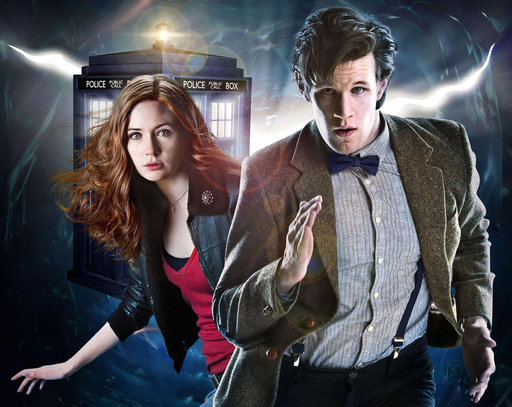

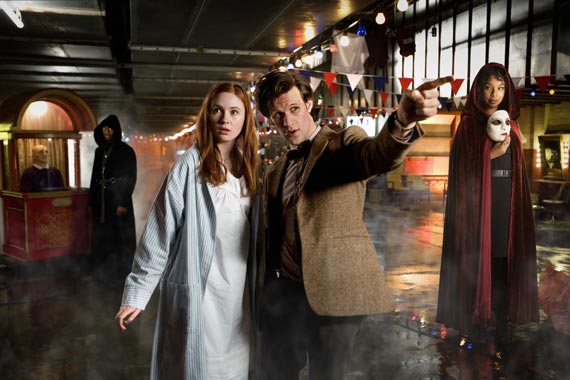
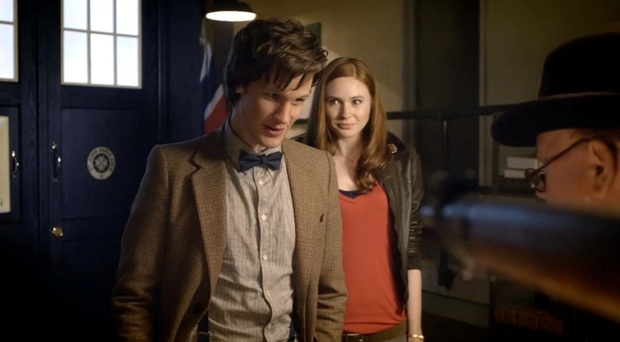
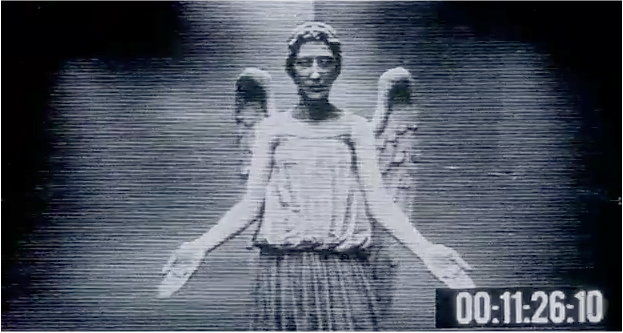
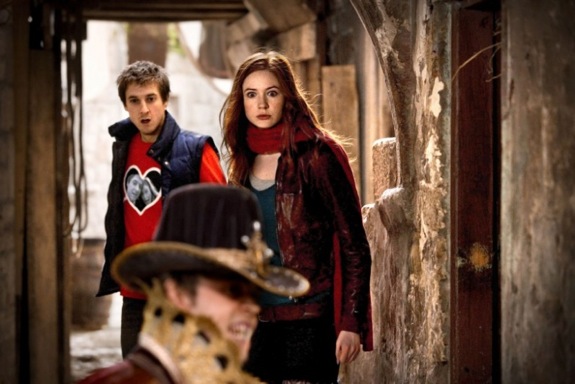
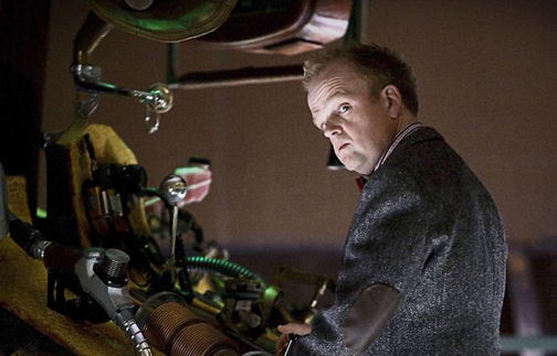
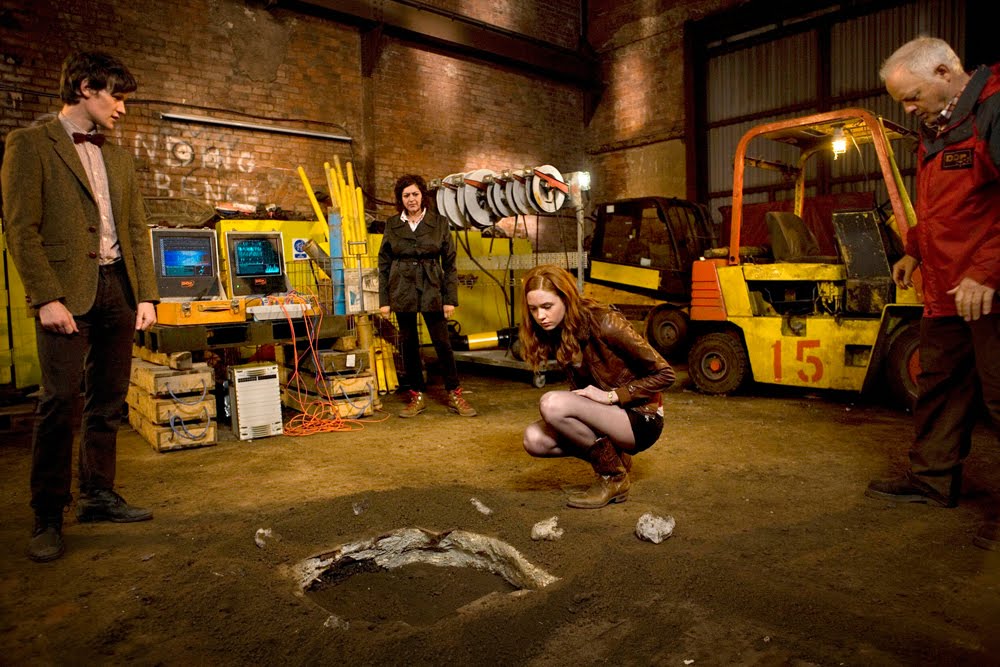
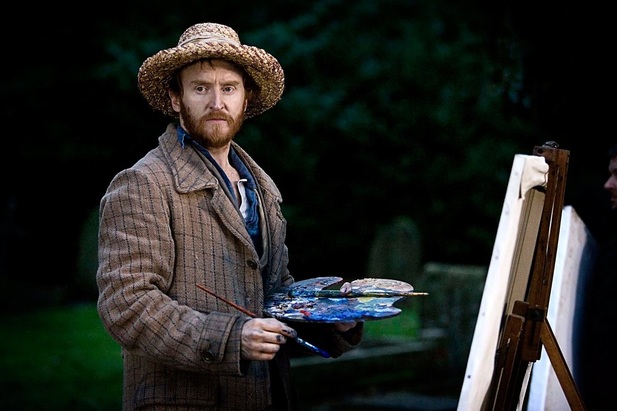

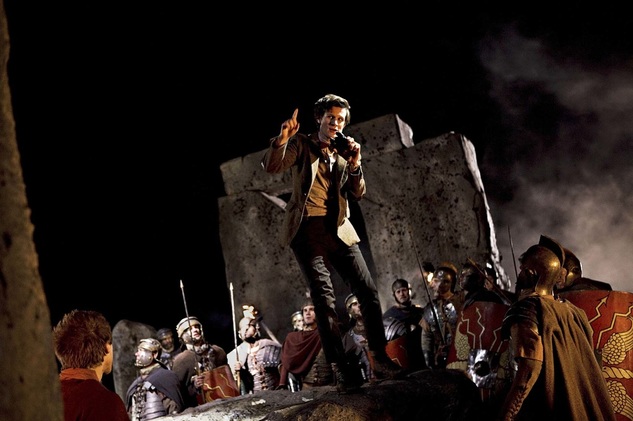
 RSS Feed
RSS Feed
